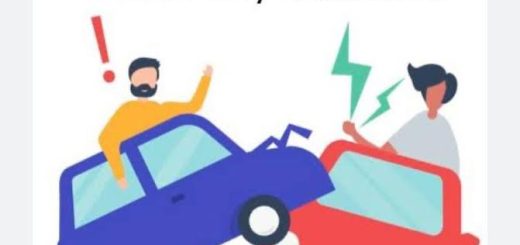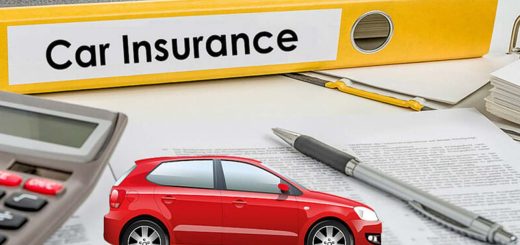Comprehensive vs Third-Party Car Insurance in Nigeria: The Differences
Do you want minimum basic insurance coverage or extensive protection for your vehicle?
As a car owner in Nigeria, deciding between a comprehensive insurance policy or more affordable third-party coverage is an important decision.
But what exactly is the difference between comprehensive and third-party car insurance when it comes to the scope of coverage, own damage protection, premium costs, and overall value for money for drivers in Nigeria?
This article explores the key differences between comprehensive and third-party car insurance in Nigeria.
WHAT IS COMPREHENSIVE CAR INSURANCE?
A comprehensive car insurance policy is the most extensive type of cover available. As the name suggests, it is comprehensive in the sense that it combines multiple different aspects into a single policy. A comprehensive policy will typically include:
- Third-party liability cover: This covers injury to others and damage to their property if you are deemed responsible for an accident. It is mandatory in Nigeria.
- Collision damage waiver (CDW): This optional add-on covers damage to your own vehicle in an accident when you are at fault.
- Theft and fire damage: Coverage in case your vehicle is stolen or destroyed by fire.
- Additional extras: Policies may also include things like personal accident cover, repairs due to attempted theft and more.
The main benefit of comprehensive insurance is that it protects against almost all potential incidents and risks that may occur. However, the extensive cover means premiums are higher.
WHAT IS THIRD-PARTY INSURANCE?
Third-party car insurance is narrower and more basic than comprehensive cover. As the name suggests, third-party insurance only provides liability protection for damage or injury caused to others and their property if you are responsible for an accident while driving your car. Unlike comprehensive policies, third-party insurance does NOT cover damage to your own vehicle under any circumstances.
So in summary, third-party cover typically includes:
- Mandatory third-party bodily injury cover
- Mandatory property damage cover
- No own damage protection
Third party policies have lower premiums because the insurer faces reduced risk and payouts. But you have less protection overall if your own car is damaged.
KEY DIFFERENCES BETWEEN COMPREHENSIVE AND THIRD-PARTY CAR INSURANCE IN NIGERIA
There are several important ways that comprehensive and third-party car insurance differ:
SCOPE OF COVER
As described above, comprehensive has wider ranging cover that protects both your own vehicle and liabilities to third parties. Third-party only covers liabilities to others involved in an accident if you are at fault.
OWN DAMAGE PROTECTION
One major difference is that comprehensive insurance covers damage to your own vehicle but third-party does not. After a crash, comprehensive allows you to repair your car, while third-party leaves you to cover all costs out of pocket.
PREMIUMS
Due to the wider cover and higher claims payouts, comprehensive attracts higher premiums. Third-party only covers third party liabilities, so premiums are almost always lower.
REPLACEMENT CAR BENEFIT
Many comprehensive policies come with an add-on replacement car benefit, covering the cost of a rental car while yours is under repair after an accident. This is not included under third-party insurance.
THE COST: COMPREHENSIVE VS THIRD-PARTY PREMIUMS IN NIGERIA
When deciding between comprehensive and third-party car insurance in Nigeria, cost will play a major role. Comprehensive attracts significantly higher premiums, but also offers much wider protection.
Here’s a breakdown of how premium costs typically differ.
COMPREHENSIVE INSURANCE PREMIUMS
Premiums for comprehensive motor insurance can be quite steep in Nigeria, with figures varying substantially based on:
- Vehicle make and model
- Insured value of the car
- Engine capacity
- Age of the vehicle
- Driving history and claims record
- Optional extras selected
For context, premiums for more modest private vehicles like small hatchbacks or sedans typically range from about ₦150,000 to ₦300,000 when fully comprehensive. High end vehicles, luxury SUVs and sports cars could expect figures of ₦500,000 or more.
In addition, replacement car benefits, broader accident cover and protections like personal accident cover and roadside assist may push premiums higher still.
Nigeria’s high accident fatality rate also bumps up premiums across the board. For comprehensively insured vehicles, prices reflect the extensive claims payouts insurers frequently face.
THIRD-PARTY INSURANCE PREMIUMS
Third party premiums, on the other hand, are considered affordable by most Nigerian drivers. Statutory minimum third party property damage of ₦1 million and bodily injury coverage of ₦2 million usually costs between ₦30,000 and ₦50,000 for private vehicle owners. That’s less than a quarter of the price of comprehensive cover!
The cheaper third-party premiums reflect the fact policies only cover legal liabilities from an at-fault accident, without any own-damage protection or extras. Lower risk exposure lets insurers offer more budget friendly rates.
As you can see, comprehensive insurance costs markedly higher premiums but matches this with far wider ranging cover, justifying the price gap for most Nigerian motorists wanting comprehensive protection in case of any incidents or loss.
WHICH IS BETTER FOR DRIVERS IN NIGERIA?
For most drivers, comprehensive cover is the better option if premiums are affordable. The protection for your own vehicle is invaluable in the aftermath of an accident or incident. However, for those facing financial constraints or with older cars, third party cover at least provides basic protection for others on the road.
Ultimately the additional peace of mind makes comprehensive the superior product for vehicle owners who want complete insurance protection on Nigerian roads. The wider cover and optional extras mean that, even with higher premiums, comprehensive represents better overall value for many Nigerian drivers wanting to properly protect their assets and avoid massive repair bills down the line.
CONCLUSION
In short, while third-party insurance meets Nigeria’s mandatory minimum insurance requirements, comprehensive remains the safer bet for car owners wanting fuller protection.
Comprehensive includes third-party elements along with vital own damage cover, theft and fire protection, plus optional extras.
So despite higher initial outlay, comprehensive insurance enables effective coverage against almost all incidents on Nigerian roads.
I believe you have learnt a lot from this article, so you will be able to make a decision when settling for either comprehensive or third-party car insurance in the country.


